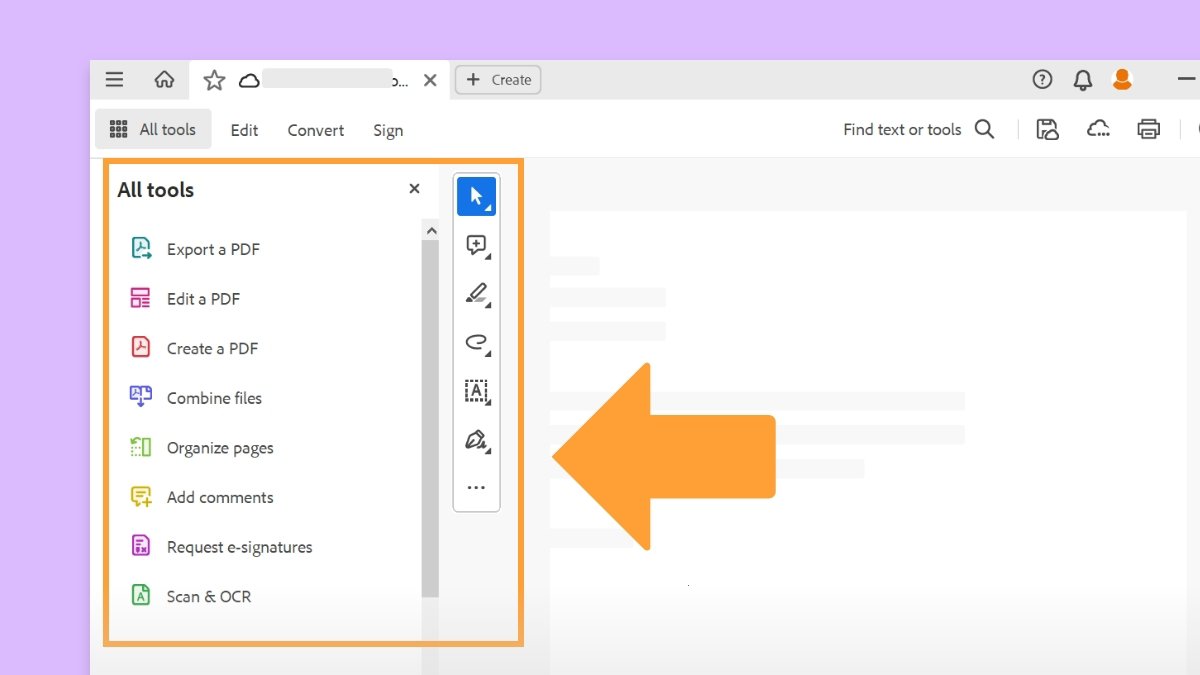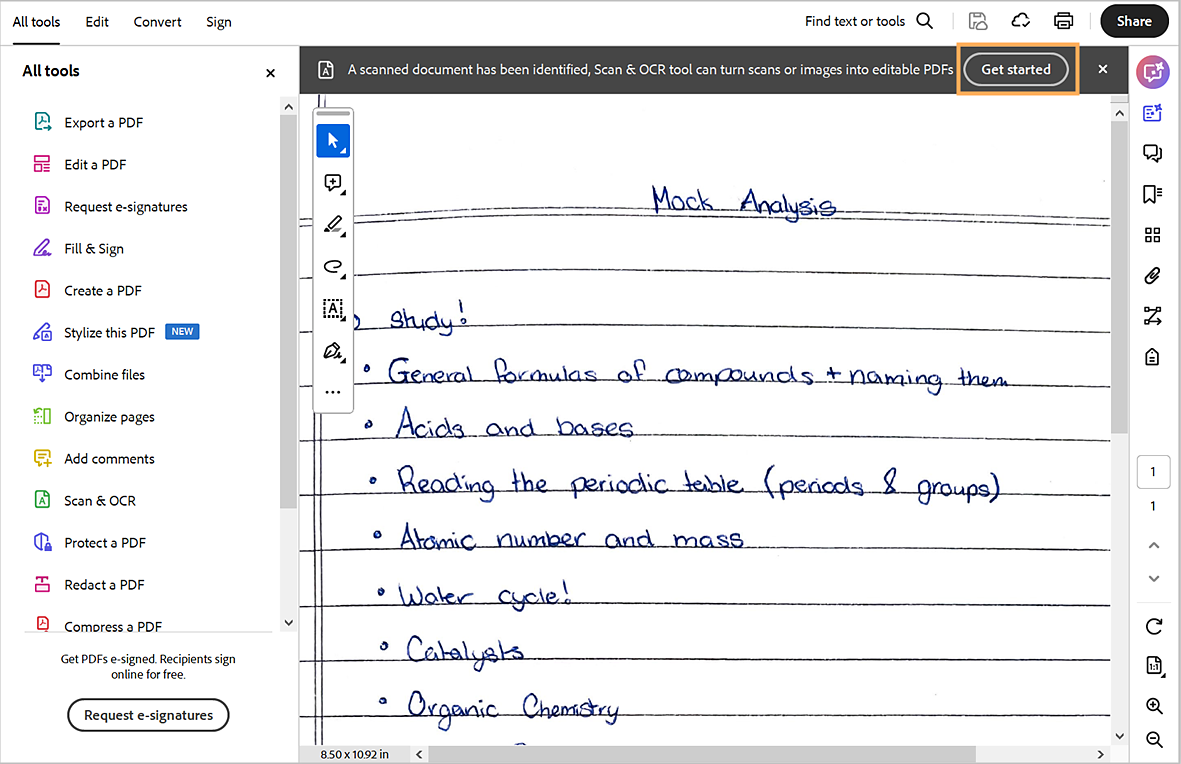Before you begin
We're rolling out a new, more intuitive product experience. If the screen shown here doesn’t match your product interface, select help for your current experience.
Before you begin
We're rolling out a new, more intuitive product experience. If the screen shown here doesn’t match your product interface, select help for your current experience.


Editing a scanned PDF can be complicated if it includes low-quality text or images, non-editable text, line breaks, or complex formatting. Other inhibiting factors include compatibility issues, security restrictions, and large file sizes, which are more prevalent in PDFs created from scanned images.
To streamline the process, consider the following best practices and guidelines before editing a scanned document:
Check the accuracy of optical character recognition (OCR) output. When you open a scanned document, Acrobat automatically runs OCR in the background to make the document editable. Before editing, review the document to ensure that the content is accurate and complete. If necessary, rescan the document using the Scan & OCR > Recognize Text tool to improve the output.
Enhance image quality. If the scanned PDF contains low-quality images, use the Enhance scanned file or Enhance camera image feature to improve the quality of images before attempting to edit the document. For more information, see Scan documents to PDF.
Use the correct font and formatting. When editing the document, ensure that the font and formatting of the edited text match the original document as closely as possible. If you don't have the desired fonts on your computer, see Add fonts to your computer.
Remove security restrictions. If the scanned PDF has security restrictions that prevent editing, remove these restrictions before attempting to edit the document. To know how to remove security from a PDF, see Unlock a PDF.
Avoid editing complex elements. If the scanned PDF contains tables, graphs, or images, avoid unnecessary edits that could alter the layout or formatting of these elements.
Check for compatibility issues. Ensure that the version of Adobe Acrobat you're using is compatible with the scanned PDF. If you encounter compatibility issues, try updating Adobe Acrobat. For more information, see System requirements.
Save a backup copy. Always save a backup copy of the original scanned PDF before making any edits. Revert to the original document if any issues arise during the editing process.
You can use the Scan & OCR tool to recognize text, change OCR language, and make all pages editable in one go. To do so:
Try it in the app
Make your scanned document editable in a few simple steps.
Open the scanned file, and then from the top banner that appears, select Get started.
It opens the Scan & OCR tool options in the left panel


From the left panel, under Recognize text, select In this file.
In the dialog that opens, select the pages that you want to apply text recognition for and the language.
Select Recognize text.
Open the scanned PDF file in Acrobat.
From the global bar in the upper left, select Edit.
Select the text element that you want to edit and start typing. The new text matches the original font in your scanned PDF.
From the upper-left corner, select the hamburger menu![]() (Windows) or File (macOS)> Save as and enter a new name for your document.
(Windows) or File (macOS)> Save as and enter a new name for your document.
Initially, the language is set to the default locale, and the other options are disabled. Any changes to these settings are persisted and are applied when you edit the document.
Adobe values your feedback. Could you tell us about your experience with PDF editing?
![]() Give feedback.
Give feedback.